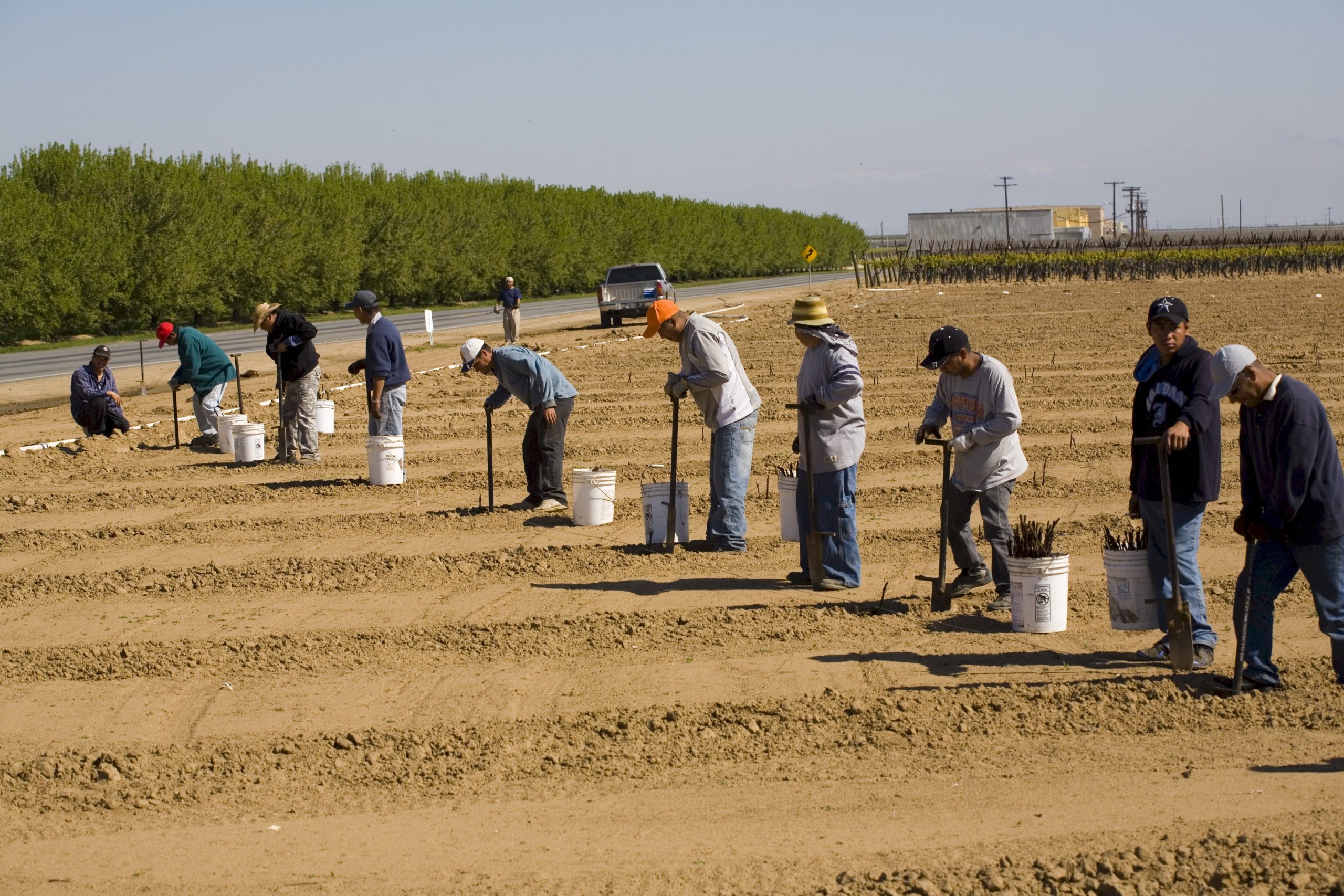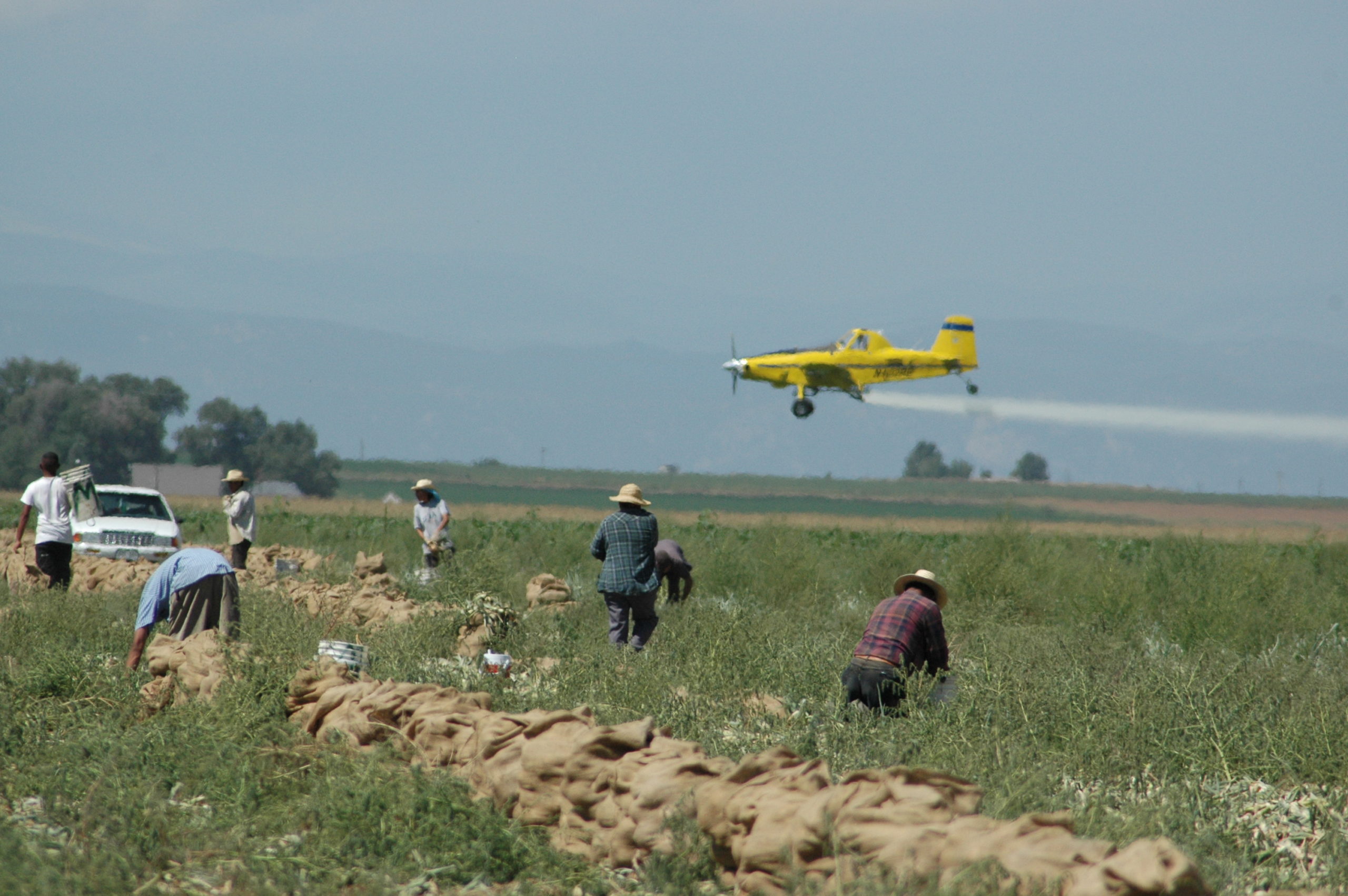The simple family farmer in the folk song “Old McDonald’s Farm” tended alone to his animals; he didn’t hire any farmworkers. Much has changed since the era of Old McDonald, yet today’s farming corporations often claim they don’t “employ” any of the workers on their farms or ranches.
Similarly, the McDonald’s Corporation, which started in a single store in 1948, claims it doesn’t employ any of the workers in its franchised restaurants. By denying employer status companies seek to avoid responsibility for ensuring that workers receive the minimum wage, Social Security coverage and other worker benefits and protections, and for negotiating with unions.
Today about 2.5 million people labor on farms and ranches in the United States. They cultivate and harvest fruits, vegetables and other crops and they raise and care for dairy cows, chickens, sheep and other livestock. Most of them work on larger farms that use from several dozen to a few thousand farmworkers each year. A large percentage of these farmworkers are recruited, hired and employed through farm labor contractors, “crewleaders,” labor leasing firms or other intermediaries. The farm operator often contends that it does not “employ” any farmworkers. Rather, it claims that the labor contractor is the sole “employer” and therefore is solely responsible for complying with the minimum wage, workers’ compensation, Social Security contributions and immigration laws.
About 1.5 million people work at tens of thousands of McDonald’s fast food franchises around the world, whom McDonald’s claims that it does not employ. It contends that the franchisee is the only employer and is solely responsible for setting job terms and complying with labor and immigration laws.
These efforts to escape status and responsibility as an employer have dire consequences for many workers. The farm operators and McDonald’s possess economic power to dictate how the farm labor contractors operate and how the McDonald’s franchisees carry out their functions. They take advantage of that power for their own benefit, leaving few resources for the worker to gain from the labor contractor or franchisee.
Farmworkers often do not receive the promised, or even legally-required, job terms from their labor contractor. If they dare to sue the labor contractor, most have a hard time collecting what is owed. With a majority of the farm labor force lacking authorized immigration status, few farmworkers feel protected to file lawsuits or join a labor union.
The McDonald’s Corporation’s success is built largely on its ability to control the consistency of the customer experience at its company-owned and franchised restaurants throughout the world. For workers who wish to reform the way they are treated, many franchise owners will not and cannot adopt major changes unless McDonald’s revises its approach.
One of the solutions is to reject the companies’ claims that they are not “employers,” instead making the farm operator and McDonald’s “joint employers.”
Farmworkers have sued growers and their labor contractors as joint employers with some success, and fast food workers are also now making efforts to hold McDonald’s responsible as an employer of the workers in its franchised restaurants in the U.S. Recently, the chief attorney at the National Labor Relations Board announced plans to bring a case to hold McDonald’s responsible as an employer under the National Labor Relations Act. The NLRA (which excludes agricultural workers and employers) protects most workers’ right to organize free from retaliation and requires employers to bargain collectively in good faith with certified labor unions.
The response from business has been predictably fierce. Both McDonald’s and farm operators want to exercise the right to control their franchises and labor contractors, respectively, to assure their profit, which has substantial consequences for the people who actually perform the work.
Long ago, Old McDonald’s Farm stopped being the predominant model for agriculture, and McDonald’s ceased to be an owner-operated hamburger joint. The courts should make clear that fast food chains and farm operators are jointly responsible as employers of the workers who labor in restaurants and farms.
Goldstein is president of Farmworker Justice, a non-profit, nonpartisan organization in Washington, D.C. that works to improve living and working conditions for migrant and seasonal farmworkers.
By Bruce Goldstein
Read moreOpEd in The Hill: Old McDonald had a farm and a hamburger joint – but no employees



